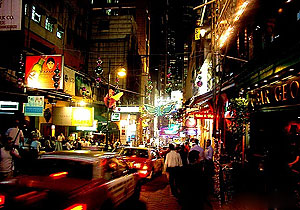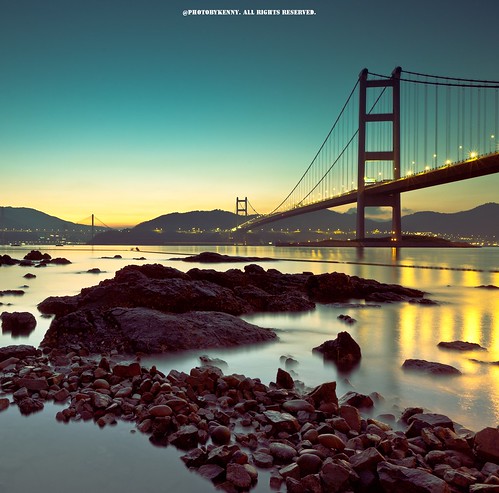Architectural theories:
- Formalism
http://architecture.about.com/od/20thcenturytrends/ig/Modern-Architecture/Formalism.htm - Structuralism
http://architecture.about.com/od/20thcenturytrends/ig/Modern-Architecture/Structuralism.htm - Bauhaus
http://architecture.about.com/od/20thcenturytrends/ig/Modern-Architecture/Bauhaus.htm
http://www.art.highlandschools.org.uk/links/movements/bauhaus/bauhaus.html - Deconstructivism
http://architecture.about.com/od/20thcenturytrends/ig/Modern-Architecture/Deconstructivism.htm - Bigness
http://130.217.226.8/handle/10652/1418
http://varasfadu.com.ar/pu/Textos/Bigness-SMLXL_ing.pdf - Minimalism
http://architecture.about.com/od/20thcenturytrends/ig/Modern-Architecture/Minimalism.htm - Organic
http://architecture.about.com/od/20thcenturytrends/ig/Modern-Architecture/Organic.htm
An interesting short video showing a valley of my country of origin, Hong Kong.
"My intent with this project was to illustrate the grandeur of Hong Kong that most people would never get to see." - Javin Lau
Hong Kong is Home. from Javin Lau on Vimeo.
Some great photographs from his blog:
http://javinlau.tumblr.com/
Other blogs:




An image from CryENGINE3 inspired by a valley of my country of origin, Hong Kong:
Other blogs:
- Amazing photos of Hong Kong
kmdd's photosteam
http://www.flickr.com/photos/kmdd/with/5999791325/#photo_5999791325
- "I don't think many people leave Hong kong to come visit Lamma Island, but it is a nice Jaunt. There is a nice hiking path around the island and it ends at this little harbor. There's lots of good and the reflections around sunset are a treat." - Trey Ratcliff
http://www.stuckincustoms.com/category/travel/china/lamma-island/
- The daily Hong Kong
http://www.thedailyhongkong.com/ - Hong Kong - Tsing Ma Bridge
http://www.flickriver.com/places/Hong+Kong/New+Territories/%E7%99%BD%E9%9B%B2/
"Lan Kwai Fong is one of Hong Kong’s most popular nightlife hot spots and home to over 90 restaurants and bars. The atmosphere ranges from stylish wine pairings to raucous jelly shots and the food on offer is as diverse as the clientele."




An image from CryENGINE3 inspired by a valley of my country of origin, Hong Kong:
MashUp:
As a city, Hong Kong doesn’t have
it easy, impossibly dense and smothered by unsympathetic hilly
terrain, hence it is aspire to raise
international awareness of the importance of public space in cities. Today, Hong Kong is penetrated by a vast system of
connected lobbies, walkways, and tunnels that rise and fall without any
apparent relationship to ground level. To improve the quality of their public spaces as Hong
Kong suffers from a lack of social space, we can apply the
“Placemaking methodology” to advance the development of cities where people of
all income groups, social classes and ages can live safely, happily and in
economic security.
The most successful public
spaces are “multi-use destinations” with many attractions and activities, for example,
the internal and external courtyards create new public spaces of an intimate
scale which complement the large open exhibition forums and outdoor
recreational facilities to promote a diversity of civic spaces, where citizens can find common ground and
where ethnicity and economic tensions can go unnoticed. Also, creating more pedestrian-friendly streets in
general will provide spaces for interpersonal interaction and foster a
sense of community that is impossible in a primarily vehicular road, and this can be achieved in Zaha Hadid’s new Innovation Tower where
the route through the building becomes a
clear upward cascade of showcases and events allowing the student or visitor to
visually covet and engage work and exhibits throughout its circulation passage.
Sources:
- Rackard , Nicky. "Cities Without Ground: A Hong Kong Guidebook" 28 Mar 2013. ArchDaily. Accessed 23 Jun 2013. http://www.archdaily.com/352543
- Furuto , Alison. "Innovation Tower, Hong Kong Polytechnic University / Zaha Hadid Architects" 28 Oct 2012.ArchDaily. Accessed 24 Jun 2013. http://www.archdaily.com/279631
- Porada , Barbara. "Ten Ways to Transform Cities through Placemaking & Public Spaces" 21 Apr 2013.ArchDaily. Accessed 24 Jun 2013. http://www.archdaily.com/362988




No comments:
Post a Comment